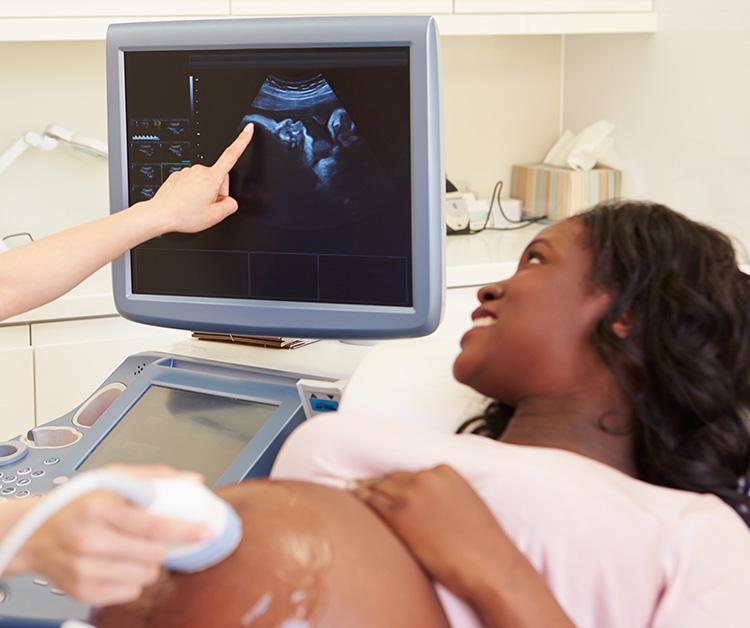
What you need to know about the first visit, ultrasounds, and other common prenatal tests.
Medically reviewed by a board-certified pediatrician
Pregnancy is a time filled with excitement and joy. It’s also filled with visits to your doctor for tests to make sure your baby’s healthy. We cover everything from the first visit to details on various prenatal tests.
It might seem like a sure thing, but your doctor will want to be certain you're really pregnant. Once you pass that test, you'll be asked about nausea, headaches, or other issues. If you know the date of your last period, your doctor will be able to calculate the all-important due date!
In the prenatal interview, you’ll give your entire medical, gynecological, family, and lifestyle history. The more your doctor knows about your history, the more personal and accurate your journey through pregnancy will be.
For each of your prenatal exams, your doctor will take your weight, height, and blood pressure. At your first visit, they’ll check your cervix. Your first visit will likely be your longest.
Early blood tests are meant to check your blood type, screen for anemia, sexually transmitted infections such as HIV and syphilis, and test for past immunity to diseases like rubella. Your blood will be tested at different times throughout your pregnancy for genetic screens, gestational diabetes, and in your third trimester—anemia. Urine testing will check for sugar, protein, and bacteria. At your first prenatal visit, you may get a pap smear and cervical cultures for infections such as chlamydia and gonorrhea.
A first trimester ultrasound can confirm if a pregnancy is in the preferred location inside your uterus, confirm your due date, and determine if you're having twins. In the second and third trimester, an ultrasound evaluates your baby's growth, gender, and possible birth defects.
Sometime between 18 and 20 weeks pregnant, your baby gets their first photo taken. The sonogram, taken during the ultrasound, is painless, informative, and completely safe for you and your baby. It's also exciting to actually see your little one for the very first time.
The most common type of ultrasound your doctor will perform is Level One, which is used to confirm your baby is onboard. It takes about 20 minutes and is usually done right in your doctor's office. There, your doctor will show you all the exciting progress happening inside you—your baby's heart, limbs, fingers, toes, and even genitalia, so make sure you let them know ahead of time if you want the gender to be a surprise!
A Level Two ultrasound is much more thorough, and usually reserved for high-risk pregnancies or after irregularities are found in a Level One ultrasound. It takes more than an hour to complete.
Here's what you can expect in a Level Two ultrasound:
Between 24 and 28 weeks pregnant, you may need a glucose prenatal test to screen for gestational diabetes. After drinking a sugar solution, your blood will be taken to test your glucose level. High levels can indicate gestational diabetes, a temporary condition that can be treated.
Usually performed between 15 and 18 weeks pregnant, this prenatal test is generally for moms who've had a child with a genetic disorder, or those over the age of 35. The test involves extracting a small amount of amniotic fluid with a needle to detect genetic abnormalities. If there’s concern about maternal exposure to an infection, amniotic fluid can confirm if that infection has invaded the baby’s environment.
This prenatal test, also performed between 15 and 18 weeks pregnant, helps screen for neural tube defects like spina bifida. A positive result requires further testing.
The CVS test happens between 10 and 12 weeks pregnant to help detect genetic abnormalities like Down Syndrome. It’s performed by inserting a thin needle into the placenta through the vagina or abdomen. Historically, there’s a slightly increased risk of miscarriage with CVS. Most medical providers find there’s no difference in miscarriage risk between CVS and amniocentesis. To determine which genetic prenatal test is better for you, discuss these options with your doctor.
Unfortunately, any prenatal test you take comes with a risk of a false positive. False positive means the test indicated that there might be something wrong with your baby even if this turns out not to be the case. CVS and amniocentesis are the gold standard for genetic testing and false positives are very rare with them.
And that’s the scoop on your first prenatal visit, common prenatal tests, and beyond. If you’d like to know more about what to expect at each visit, we’ve got more information on prenatal care during your pregnancy.
All information on Enfamil, including but not limited to information about health, medical conditions, and nutrition, is intended for your general knowledge and is not a substitute for a healthcare professional's medical identification, advice, or management for specific medical conditions. You should seek medical care and consult your doctor or pediatrician for any specific health or nutrition issues. Never disregard professional medical advice or delay seeking medical treatment, care, or help because of information you have read on Enfamil.